Press rewind: Trump, Tokyo and a welcome back to the 1980s
- Published

It was the decade of The Empire Strikes Back and Michael Jackson's song Beat It.
A time when Madonna introduced legions of teenage girls to scrunchies and Jane Fonda made lycra and leg warmers cool.
And if you were listening to cassette tapes - there's a good chance it was on the revolutionary Walkman - made by Japanese electronics firm Sony.
But not everyone was a fan of this Asian influence.
Books like "Japan as Number One" made the bestseller list, underscoring the antagonism many Americans felt about the then rising Asian superpower.
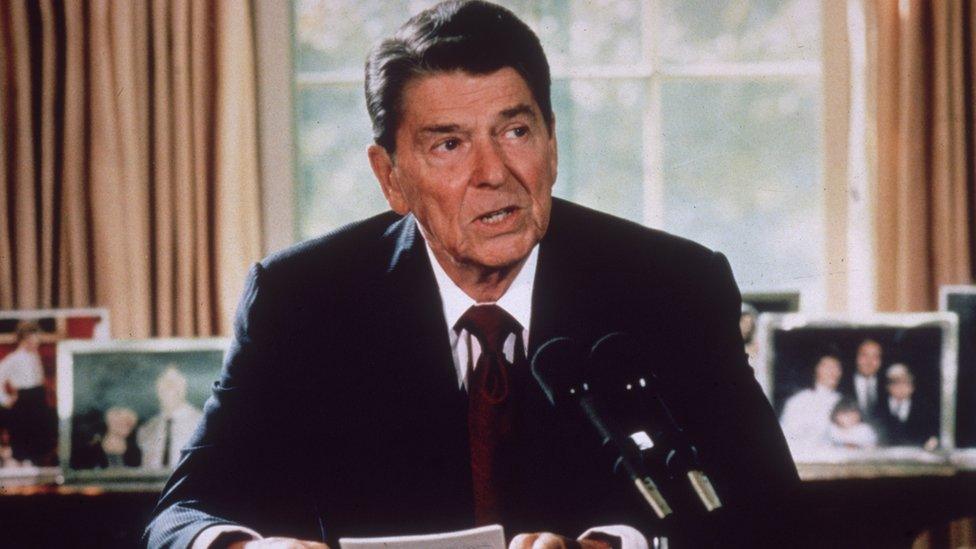
American president Ronald Reagan in 1985
And US President Ronald Reagan was slamming Japan for not opening its markets enough to US products.
"We sell a car into Japan, and they do things to us that make it impossible to sell cars in Japan, and yet they sell cars into us," is the kind of rhetoric you might hear.
Except that's not Reagan in 1982. It's Donald Trump in 2017.
So are we rewinding back to the 1980s?
It's a pertinent question to ask, especially as Japan's Prime Minister Shinzo Abe visits the US to meet newly elected President for some leisurely golf and tough talking.
Cars and cows
Currency will be a talking point on the tee. Like in the 1980s, the US dollar is stronger than the Japanese yen - making Japanese goods cheaper for American consumers.
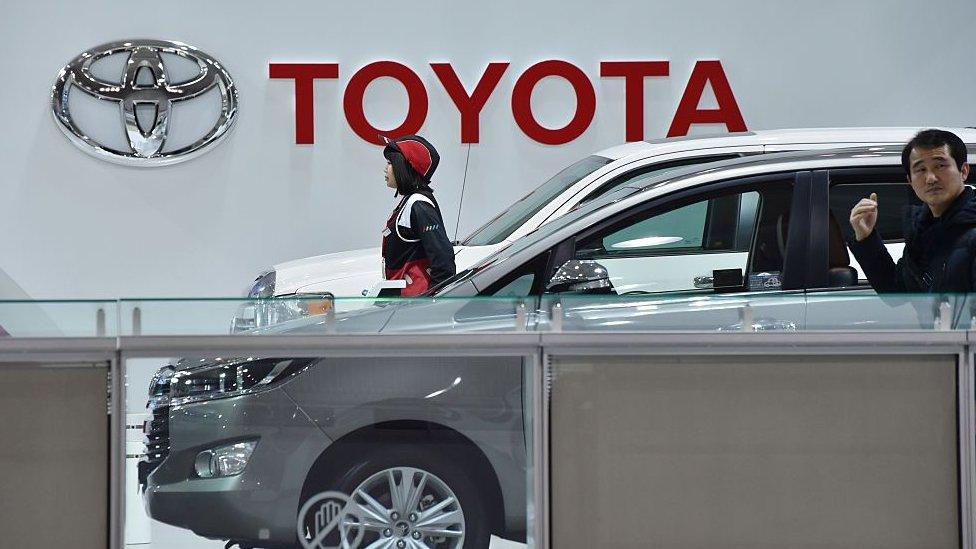
Japanese car giant Toyota says will invest $10bn in the US over the next five years
Then, like now, the industries that were the main sticking points were the auto sector and agriculture.
Cars, cows and citrus fruit led to a soaring US trade deficit with Japan, worth almost a fifth of the US's GDP at the time.
Today the deficit between the two nations has halved, but when the two leaders meet over the next few days, it is these same three subjects that will likely be the focus of their talks.
1. Auto sector
In the 1980s, Japanese car-makers built factories in the US to ward off criticism that they were unfairly dumping products in American markets.
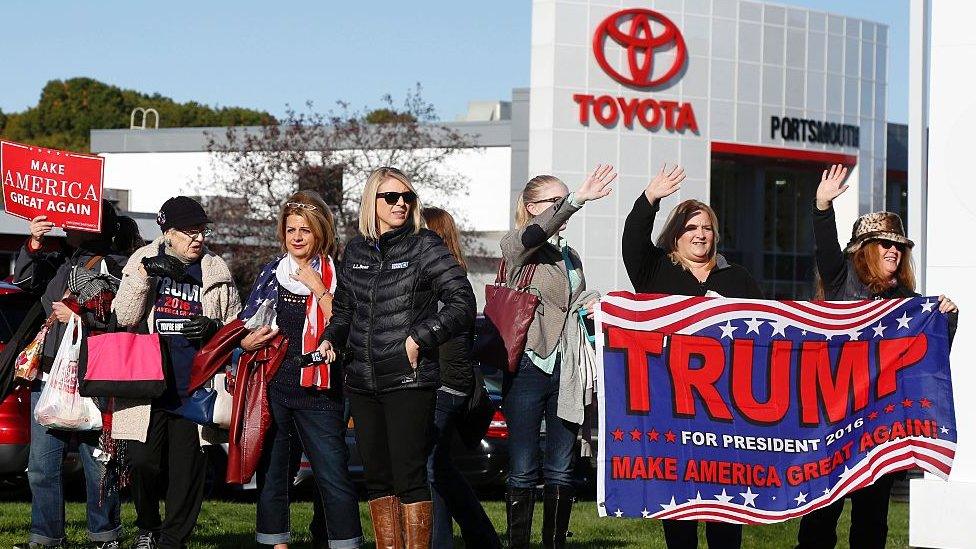
Most recently, Toyota has become a target of Mr Trump's trade rage for building a car plant in Mexico
As a result, these days more than six million Japanese cars are sold in the US, with only around one million of them made in Japan.
But apparently, that isn't enough.
Toyota became a target of Mr Trump's trade rage recently for building a car plant in Mexico.
In response, Toyota said it would invest $10bn in the US over the next five years.
But analysts say the tough talk on cars won't end until Tokyo offers up some major concessions elsewhere, in particular on agriculture.
2. Agriculture
To protect its farmers, Japan places an average 14% tariff on all agricultural goods imported into the country. By comparison, the US has a much lower tariff of 5%.
If the Trans-Pacific Partnership had gone through, many of Japan's tariffs would have been eliminated.
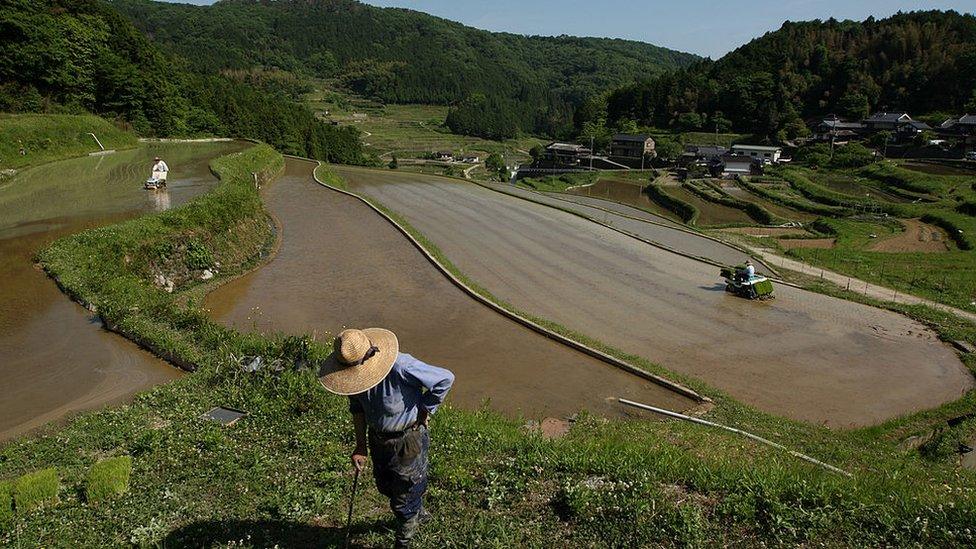
To protect its farmers, Japan places an average 14% tariff on all agricultural goods imported into the country
Tariffs on beef for example - the US's top agricultural export to Japan - would have been slashed by 74% within 16 years.
Mr Trump effectively killed the TPP by removing the US from it. He will argue that if Tokyo wants to trade with the US and sell its cars to American consumers, it's going to have to cut tariffs even more aggressively.
3. Currency
Mr Trump says that Japan is using monetary policy and intervention to keep the yen weaker against the US dollar, making its goods cheaper in the US.
Tokyo has heard this before. In 1985, Japan signed the Plaza Accord - an agreement that eventually saw the yen rise by 46% against the US dollar.
Some economists argue that this brought about the "Lost Decades" of Japan - an era of low wages and low growth that Japan is still trying to get out of.
Tokyo will be wary of any arrangement that will see the yen's value strengthen.
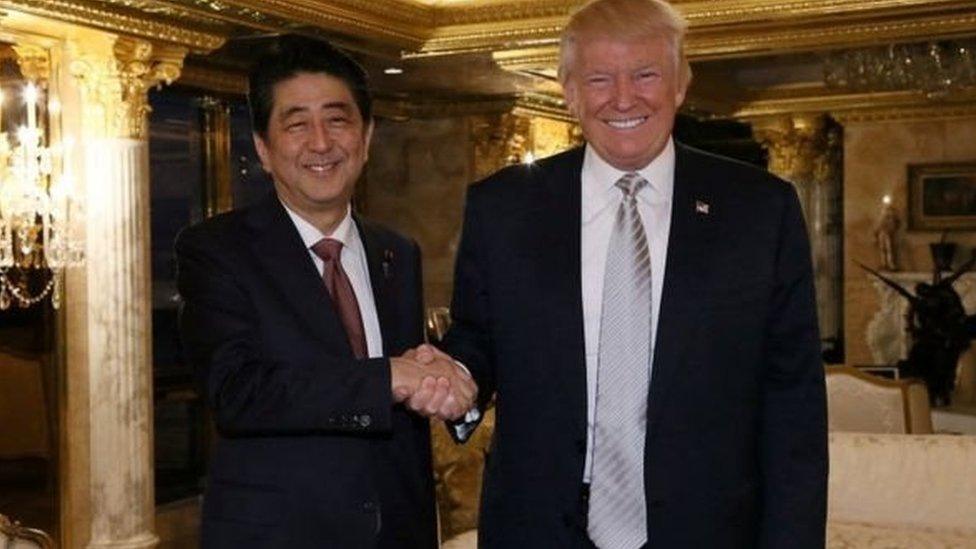
Prime Minister Abe may be forced to make some concessions to get the new US president to see his point of view
That's especially true at a time when every controversial tweet by President Trump sends investors flocking to the safe-haven yen, making it even harder for Japan to stick to its export-led recovery path.
What Tokyo Wants
Prime Minister Abe will be under great pains to emphasise to President Trump that Japan today is very different from the 1980s - and that Tokyo shouldn't be a target of his trade rage.
There is one thing though that has stayed pretty much the same since then, and that's Japan's dependence on the US.
Many of the trade concessions Tokyo made in the 1980s to appease the US were based on geopolitical considerations. Japan wanted continued US military and political support in its backyard.
The same, to some extent, is true today.
Prime Minister Abe may be forced to make some concessions to get the new US president to see his point of view, even if there's a possibility that Japan Inc gets hurt in the bargain.
- Published6 January 2017
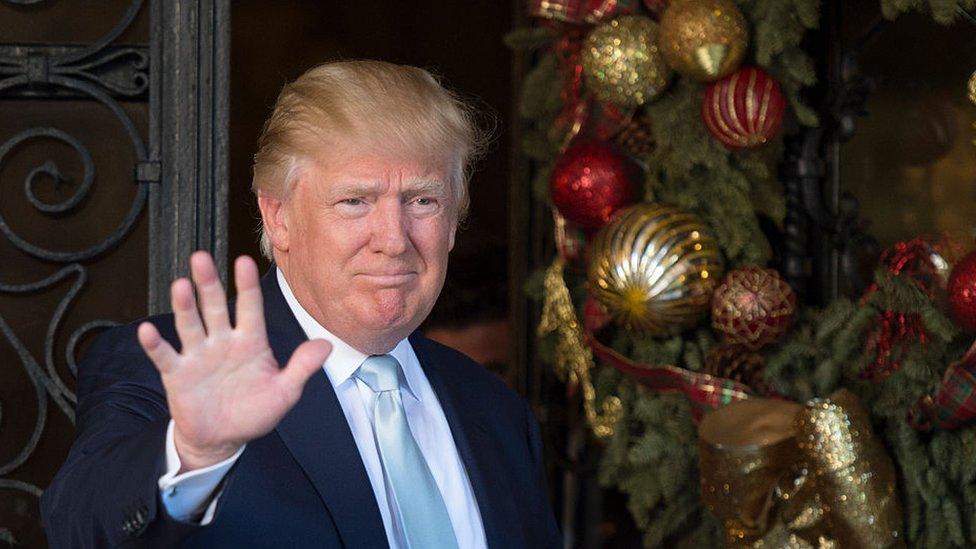
- Published24 January 2017
- Published23 January 2017
- Published16 January 2017
- Published22 December 2016